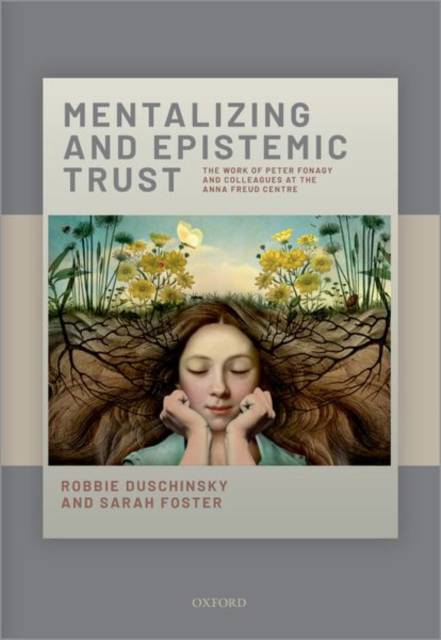
- Retrait gratuit dans votre magasin Club
- 7.000.000 titres dans notre catalogue
- Payer en toute sécurité
- Toujours un magasin près de chez vous
- Retrait gratuit dans votre magasin Club
- 7.000.0000 titres dans notre catalogue
- Payer en toute sécurité
- Toujours un magasin près de chez vous
Mentalizing and Epistemic Trust
The Work of Peter Fonagy and Colleagues at the Anna Freud Centre
Robbie Duschinsky, Sarah Foster
Livre relié | Anglais
127,45 €
+ 254 points
Description
This is an open access title available under the terms of a [CC BY-NC-ND 4.0 International] licence. It is free to read at Oxford Clinical Psychology Online and offered as a free PDF download from OUP and selected open access locations. The theory of mentalizing and epistemic trust introduced by Peter Fonagy and colleagues at the Anna Freud Centre has been an important perspective on mental health and illness. Mentalizing and Epistemic Trust is the first comprehensive account and evaluation of this perspective. The book explores twenty primary concepts that organize the contributions of Fonagy and colleagues: adaptation, aggression, the alien self, culture, disorganized attachment, epistemic trust, hypermentalizing, reflective function, the P factor, pretend mode, the primary unconscious, psychic equivalence, mental illness, mentalizing, mentalization-based therapy, non-mentalizing, the self, sexuality, the social environment, and teleological mode. The biographical and social context of the development of these ideas is examined. The book also specifies the current strengths and limitations of the theory of mentalizing and epistemic trust, with attention to the implications for both clinicians and researchers. This book will be of interest to historians of the human sciences, developmental psychologists, and clinicians interested in taking a broader perspective on psychological theory and concepts.
Spécifications
Parties prenantes
- Auteur(s) :
- Editeur:
Contenu
- Nombre de pages :
- 304
- Langue:
- Anglais
Caractéristiques
- EAN:
- 9780198871187
- Date de parution :
- 25-10-21
- Format:
- Livre relié
- Format numérique:
- Genaaid
- Dimensions :
- 180 mm x 250 mm
- Poids :
- 707 g

Les avis
Nous publions uniquement les avis qui respectent les conditions requises. Consultez nos conditions pour les avis.






